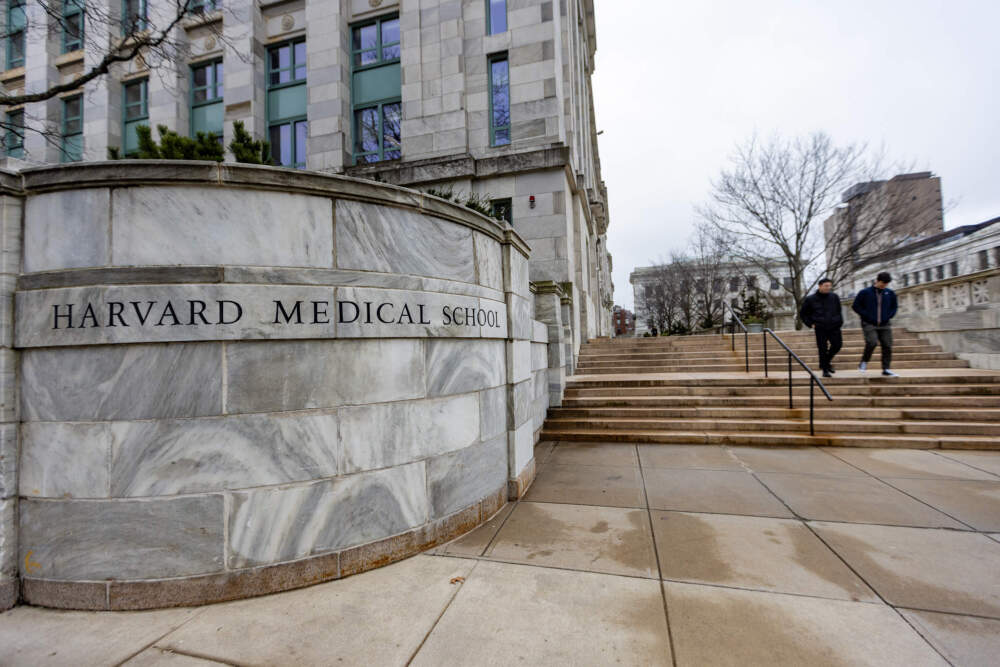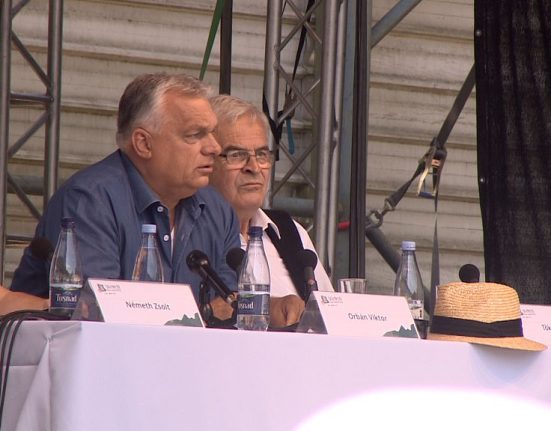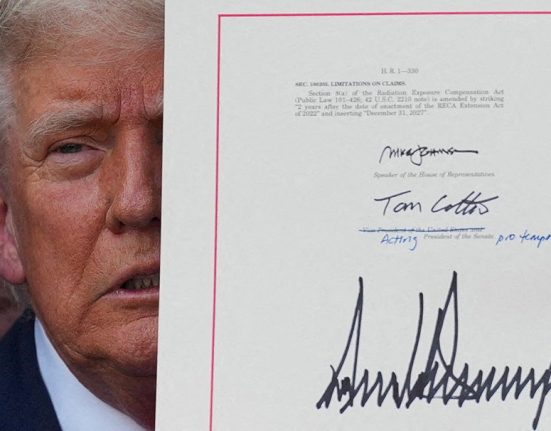The Trump administration is following through on threats to terminate $2.7 billion dollars in federal grants and other funding for Harvard University.
Hundreds of researchers at Harvard Medical School and the T.H. Chan School of Public Health opened emails this week that said funding was eliminated for research across a host of areas, from the origins of breast cancer and the impact of nutrition on fertility to antibiotic resistance.
“It feels like the academic equivalent of nuclear war,” said Dr. Michael Barnett, an associate professor of health policy at the school of public health. “Nukes have been launched and there’s just increasingly complete devastation”
The loss of funding is a blow to researchers who’ve spent decades working to improve human health, to lab staff who hoped findings would launch their careers, and to patients around the world who rely on this work.
Joan Brugge is in the final year of an “Outstanding Investigator Award” from the National Cancer Institute. Her lab has identified altered cells that could be the origin of breast cancer.
“Now we’re finding ways to detect those cells and destroy them so we can prevent the progression of cancer,” said Brugge, a professor of cell biology at Harvard Medical School. Losing the money to continue her research feels like a gut punch, she said.
“I’m in shock,” Brugge said. “To have my ability to do that research terminated for what you could consider political reasons is unimaginable.”
The draconian cuts are part of a pressure campaign on universities the Trump administration alleges have allowed antisemitism and “race discrimination” on campus. The president’s Joint Task Force to Combat Anti-semitism posted notice on Tuesday that it would move to terminate $2.7 billion in frozen funding.
“Harvard’s campus, once a symbol of academic prestige, has become a breeding ground for virtue signaling and discrimination,” task force leaders said in the statement. “Institutional leaders have forfeited the school’s claim to taxpayer support.”
“These grants are not handouts to the university. That could not be further from the truth,” said Michael Baym, whose lab at Harvard Medical School studies how bacteria evolve to resist antibiotics. “These are hard-won, competitive awards and the cuts to scientific research are breaking the engine of American progress.”
Baym opened his first grant termination email Monday night. By Friday, he’d received five such messages, ending funds for 90% of the work in his lab that employs six graduate and four post-doctoral students. Baym said not knowing what’s next for them is devastating.
Harvard President Alan Garber posted a letter to the Harvard community Wednesday that pledged $250 million to “support research affected by these recent suspensions and cancellations.” But researchers don’t know yet how that will play out. Some are under the impression that money will be distributed evenly across hundreds of projects, so they can continue for a few months, at least. Other researchers say they expect Harvard will set priorities.
Dr. Mary Rice said she’s baffled by the inefficiency of the federal cuts. She’s in the final six months of a five-year study to determine if air purifiers can help former smokers with the respiratory illness COPD. The funding was terminated on Wednesday.
“It’s a tremendous waste of resources,” said Rice, an associate professor of environmental respiratory health. “Millions of dollars have been invested in this research that could help people with COPD who are exposed to air pollutants and allergens and wildfire smoke.”
Faculty and staff at the two schools describe hallways that typically hum with energy but now feel more morgue-like. The financial chaos is happening behind closed doors, in huddled, strained meetings. Some world renowned scientists are scrambling to find new sources of funding while consoling colleagues and messaging labs around the world that might have openings for co-workers they will likely have to let go.
Francesca Dominici has 20 people in her lab at the school of public health, analyzing massive datasets, including satellite images, to determine how heat, air pollution and other changes in the climate affect human health. That work was largely funded by the National Institutes of Health — until yesterday, when five grants were terminated.
Some Harvard faculty are considering early retirement as the termination notices hit their inboxes, or a move to another school where they might reapply for federal funds. But Dominici said she isn’t leaving.
“I don’t want to abandon this ship right now,” said Dominici, director of the Harvard Data Science Initiative. “I’m coping because that’s what you have to do when you’re doing work that is good for humanity. I will continue, maybe at a smaller scale.”
Harvard has sued the Trump administration to reverse the cuts. But even if current grants are restored, researchers say prospects for future federal funding under the Trump administration are discouraging. The president’s proposed spending plan would cut the budget for the National Institutes of Health by 40%.
“With a budget like this one, what we’re signalling is that the United States is no longer interested in being a leader in science in the world,” said Dr. Jorge Chavarro, a professor of nutrition and epidemiology at Harvard’s school of public health. “This is not just a Harvard problem.”
Chavarro also lost five grants this week. One looks at the long-term health differences for babies born by C-section versus vaginal delivery. A second analyzes the impact of air pollution on fertility. Another was using AI to review mammograms and see how the environment might affect breast cancer.
With these cuts, researchers face some critical questions.
“It’s not only the immediate impact,” Chavarro said. “It’s the long-term impact for scientific discovery.”







